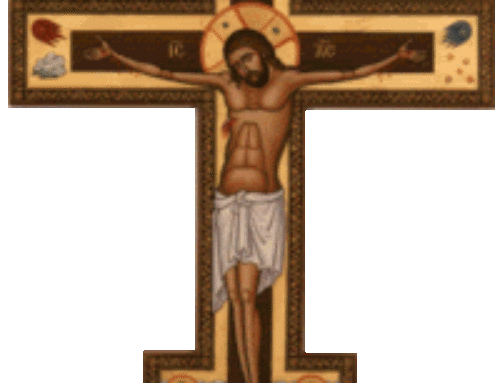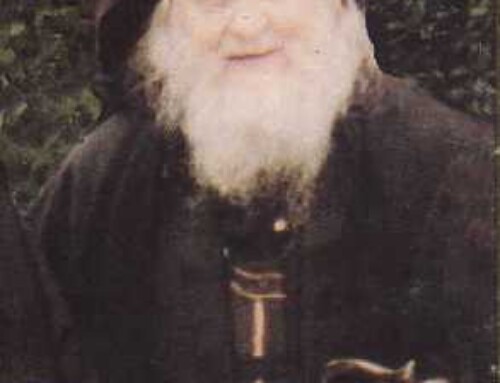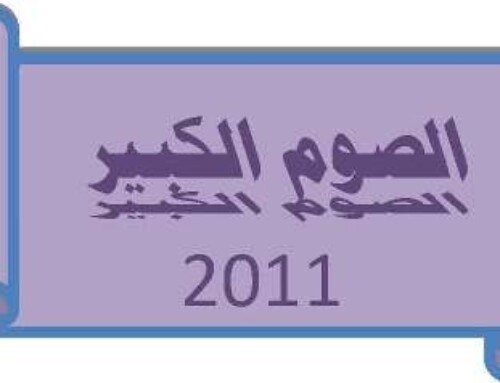Word Magazine December 1957 Page 256/275
THE NECESSITY OF RITUAL
By Eli Haddad, Worcester, Mass.
The Orthodox religion is a religion with a ritual. There is a generous splash of finery in its externals, a great deal of pageantry and drama in its ceremonies, and a popular grandeur in its approaches to the soul. It is always colorful to arrest men’s minds and to captivate their hearts. It strikes at the senses and imagination by means of ritual built up through the centuries.
Yet, we may justifiably ask ourselves whether this reliance upon material forms is really necessary to an institution which has a spiritual aim — which foretells sharing the supernatural Life through purely moral and intellectual practice of Faith and Charity. Is there any need for so much ceremony in order to know and love God? Does not all this pomp and formalism tend to be a drag upon the soul? Weren’t the early Christians much more simple in worship and wasn’t their faith and fervor highly spirited?
Before we treat these important questions, let us first be reminded that even the simplest and most austere sects are not entirely without ritual. None are so indifferent to sense values that they do not have some standard formulas for inducing religious atmosphere in worship and sacramental service. The congregation singing hymns is decidedly a sense approach — an emotional approach to the soul.
During the period of the Apostles, they went forth teaching, baptizing and breaking the Eucharistic bread in sacrifice to God and in sacrament to men. But the early Christians and their shepherds were soon driven underground in fierce and persistent persecutions. Their worship had to be as secret and as simple as possible. When at last they emerged into Constantine’s freedom, they began the task of extending the Gospel to all nations; and now began the work of attracting the pagan multitudes. The early missionaries in their wisdom and Christian enthusiasm realized that without some of the ceremony which the pagans loved they could never be won to the strict and penitential standards of Christian gospel. So the Church did not set aside the entire body of customs and ceremony amid which she found herself. Rather the Church took it over, rejecting the tinsel and unwholesome, at the same time restoring and beautifying all that was deep, sincere and lasting of the legacy of old humanity. For the Church was concerned only with a revolution of the Spirit, and so she spiritualized and Christianized all that was sound in the old forms of natural and revealed religion.
There are two categorical reasons for the liturgy in the Church. One is human, the other Divine. Humanly speaking, the Church has imposed a ritual on Her people because men are men and their psychology claimed one. If the Church were without a liturgy, she would be like a newcomer without any background, an alien without a country. It is useless for men to play at being angels. If men were disembodied spirits, they would need neither liturgy nor Church. Knowledge and grace would come intuitively and directly instead of through the process of sense perception without which the children of Adam can know nothing. The inspired Bible itself is replete with such symbols and parables.
The Church has her sacred formulas and fixed prayers to which each soul has to adapt its tone day by day, season by season. They are so numerous and varied that they satisfy every spiritual want. Some of the Church’s prayers are suppliant like the litanies — some are eloquent. The Church knows how to pray — and is at home every where. The Church blesses the ships that ride the storms, the cars and crops on which men depend, the homes in which they live. The Church blesses marriage, the expectant mother, and the delivered mother and her child. When we look through the rituals we see them bring comfort to all. Nowhere else in our circumscribed lives do we witness more beautiful pageantry, more eloquent language, and more uplifting sacred song. There, in his parish church, the poor man is the equal of the rich in God’s aristocracy. They will never see more glorious days than those in which they themselves are the heroes. At their baptisms, weddings, and even at funerals, royal incense is offered. And so, the Church, like a beneficent mother, casts her charms over her children from the cradle to the grave.
The second reason for the Church’s liturgy is based on the incarnation of the Son of God. He lived as man, ate, drank, slept and wore a linen tunic. He observed the Mosaic ritual, was circumcised on the eighth day after his birth and presented in the temple on the fortieth. He
observed the Sabbath and ate the Pasch — even on the night before He died. It was only on the Cross that the hour struck when the Father was no longer to be adored on Mount Zion or Mount Garizim — but upon Mount Calvary, in spirit and in truth — when the New Testament was to be ratified in His blood.
Many are the lessons in liturgy that He has given to His Church. He began His public life with the baptism of water. His first miracle was made with water; His last was made with wine. He fed 5,000 miraculously. He chose mere men to be His agents and dispensers of the mysteries of God. In all of this, the Divine Teacher was educating His Church to teach and to spiritualize men through human and material approaches and avenues.
He did not teach in pure metaphysics and abstractions but he spoke in parables to drive home his teachings. Sheep and shepherd, goats, wheat, cockle, laborers, vineyards, wedding feasts, garments, oil and wine. He did not take them in any stratosphere flight to Heaven — He brought the Kingdom of Heaven down to the level of their earth-bound minds. He likened His spiritual kingdom to this and to that familiar picture. He employed a veritable ritual of words and ceremony. Ceremony attended His coming to earth and His going from earth. Born in a manger at midnight, angels singing, shepherds adoring, gentile princes following a star to Him — was there ever a drama so memorable? No wonder Christmas lives — and what can compare to the Passion Play which relives the ritual of the first Holy Week. Two historic processions live forever in the memory of mankind. One was the triumphant procession of the first Palm Sunday into Jerusalem; the other was that of carrying of the Cross — out of Jerusalem and up to Calvary. The drama of His arrest, His trial, scourging and crowning, His cross-bearing, the lottery for His garments, His seven last words spaced over three hours of agony, and His giving up the ghost between two types of sinners, a converted and an unrepentant one — while the earth trembled in fear and the sun darkened in shame before their Maker. Was there ever such heightened suspense, such colorful pageantry, such climactic ritual, as that which ushered in the Christian religion.
In conclusion, Christ, the Teacher and Master Liturgicist continues to attract the multitude through His Church’s liturgy. And through the liturgy, Christ the King reigns and extends His spiritual ascendancy over the hearts and souls of the faithful, His adopted brothers and sisters.
If you would have the thrill of knowing the orthodoxy of Christ, observe Him in action in His Church — through the liturgy.





